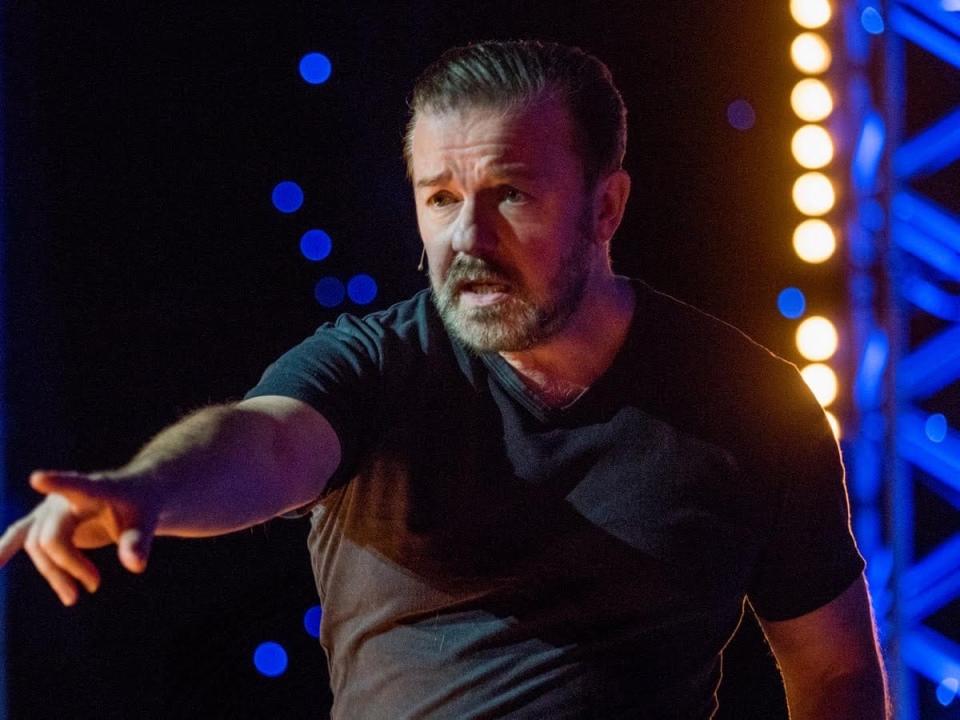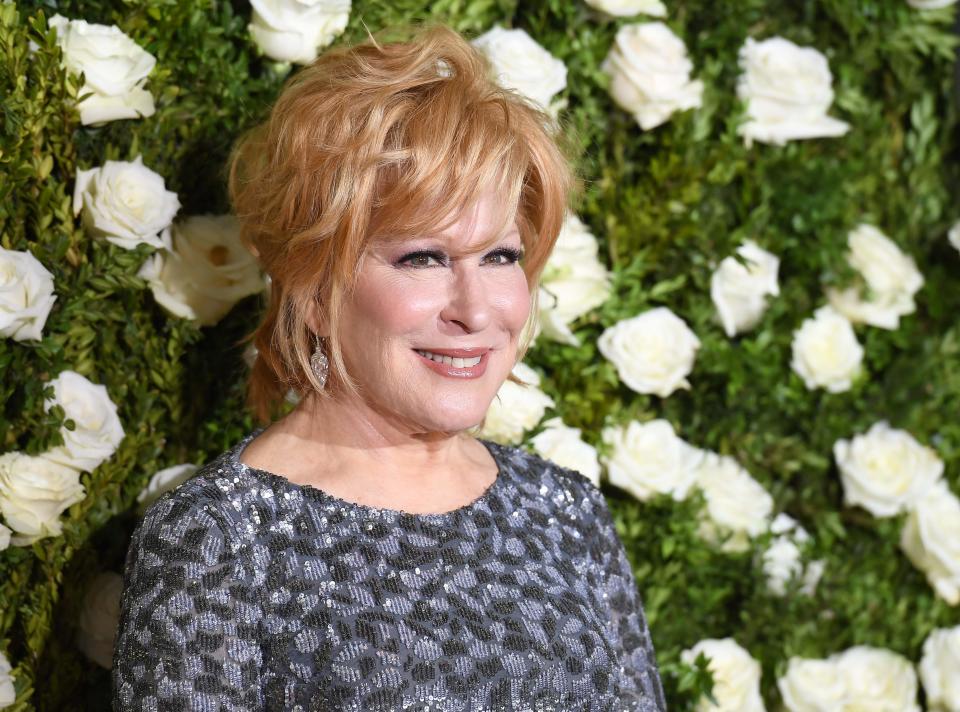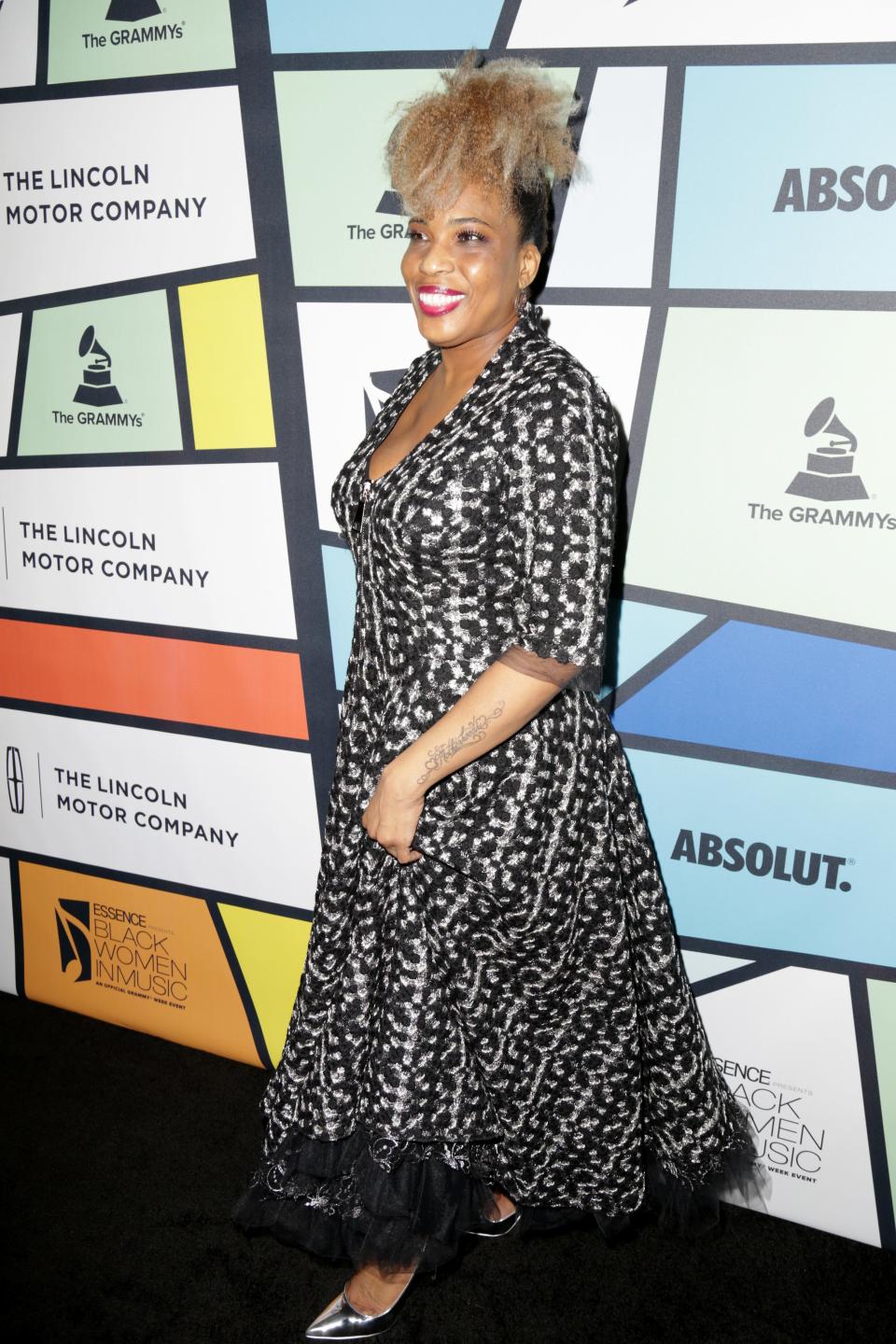The problem with celebrities and transphobia, from Bette Midler to J.K. Rowling
- Oops!Something went wrong.Please try again later.
- Oops!Something went wrong.Please try again later.
- Oops!Something went wrong.Please try again later.
- Oops!Something went wrong.Please try again later.
- Oops!Something went wrong.Please try again later.
Another day, another famous person embroiled in transphobic discourse.
Last week, Jason Aldean's wife, Brittany, expressed subtle dismay for gender-affirming care of children by comparing it to her "tomboy phase." Posting a before-and-after makeup video on Instagram, Brittany captioned the post, "I’d really like to thank my parents for not changing my gender when I went through my tomboy phase. I love this girly life."
Country singer Cassadee Pope hit back at Brittany's comments and tweeted, "You’d think celebs with beauty brands would see the positives in including LGBTQ+ people in their messaging. But instead here we are, hearing someone compare their 'tomboy phase' to someone wanting to transition. Real nice."
You’d think celebs with beauty brands would see the positives in including LGBTQ+ people in their messaging. But instead here we are, hearing someone compare their “tomboy phase” to someone wanting to transition. Real nice.
— Cassadee Pope (@CassadeePope) August 26, 2022
Maren Morris also hopped into the conversation, replying to Pope's tweet, "It’s so easy to, like, not be a scumbag human? Sell your clip-ins and zip it, Insurrection Barbie."
In a follow-up tweet, Morris wrote, "This isn’t political. We’re calling someone out for being transphobic and thinking it’s hilarious. It isn’t."
Aldean's wife is just the latest public figure accused of transphobia. Actress/singer Bette Midler and "Harry Potter" author J.K. Rowling similarly came under fire for anti-trans rhetoric.
Christian Florida school tells parents gay and transgender students must 'leave immediately'
Kendrick Lamar proves that 'nuance' is important
In May, rapper Kendrick Lamar divided the LBGTQ community when he released his introspective song "Auntie Diaries," about his two trans relatives and their experiences with prejudice. Although presumably well-meaning, the track's lyrics came under fire for repeatedly misgendering and dead-naming trans people, as well as Lamar's use of a homophobic slur.
"For those of us living at the intersection of being Black and queer, good intentions are not enough, especially when active harm comes with them," entertainment journalist Daric L. Cottingham wrote for Vox in response to the song's release, adding that its subject matter "should have been handled with more care. True allyship requires nuance."
Harry Styles addresses probing on his sexuality, says he's on his 'own journey'

Ricky Gervais, Bette Midler cause division by 'punching down'
Less than two weeks after the release of "Auntie Diaries," comedian Ricky Gervais drew backlash for his transphobic jokes in a new Netflix special "SuperNature." Gervais, who vocally supported England legalizing same-sex marriage in 2014, took aim at pronouns and so-called "identity politics," and joked that "old-fashioned women" are "the ones with wombs" and "new women" are "the ones with beards and (penises)."
Netflix co-CEO Ted Sarandos defended Gervais' remarks as "free expression," coming on the heels of the streamer's controversial standup special "The Closer" last fall, in which Dave Chappelle insisted that "gender is a fact" and declared himself a proud TERF (trans-exclusionary feminist).

Last month, Midler was also accused of being transphobic after suggesting that trans-inclusive language "erases" women, tweeting her distaste for terms such as "birthing people" and "people with vaginas." Her comments were in response to the Supreme Court's overturn of Roe v. Wade and how women's bodies are under attack.
But by defining women in exclusively cisgender terms, Midler diminished trans people's hard-fought quest for equal rights – a surprising stance, given the "Beaches" star's large queer fan base and history of supporting LGBTQ causes.
"If you're looking around right now, and your reaction is to start attacking trans people and making trans people the butt of your jokes, you're hurting an incredibly vulnerable population," says Ari Drennen, LGBTQ program director at Media Matters for America. "Cis women, trans women, trans men, nonbinary people – we're all under threat right now from the right-wing war on bodily autonomy.
"The only way we're going to prevail is together – not by punching down at other groups or trying to divide ourselves in the face of what's happening."
Opinion: Invasion of cisgender Utah girl's privacy shows danger in anti-trans laws
Trans people are being targeted with violence, discriminatory legislation
It's important for artists to consider the power of their words. In a poll released this year by the Trevor Project, 85% of trans and nonbinary people under 25 said their mental health has been negatively impacted by recent state legislation targeting LBGTQ youth.
Researchers at the Williams Institute at the University of California, Los Angeles, School of Law found that trans people are four times more likely than cisgender people to be victims of violent crime. And the Human Rights Campaign found that trans men, nonbinary and gender-nonconforming people earn 70 cents for every dollar the typical worker makes. (The number is even lower for trans women, who make 60 cents to that dollar.)
By expressing anti-trans sentiments online and through their work, celebrities send a message that it's OK to target trans people in the real world.
"They don't seem to recognize the harm they can cause in the lives of people, whether they’re trans, a person of color or from a different culture," says Rodrigo Heng-Lehtinen, executive director for The National Center for Transgender Equality. "Famous people have a decision to make about what ideas they will lift up and promote. We are seeing a terrible increase in violence against transgender people – especially Black transgender women. Transgender youth are being bullied and told they can’t play school sports. Politicians in many places are trying to take away their health care.
"The stakes are high, but sometimes those who are unfamiliar with real transgender people can’t see or understand how harmful their words and actions are to these real people."
Celebrities must learn to 'use their platforms responsibly'
Some celebrities such as Chappelle and Rowling have continued to double-down on transphobic rhetoric, despite widespread backlash. Others, like Midler, have since apologized: After claiming last month in an interview with Piers Morgan that you must be born with female genitalia to be considered a "real woman," R&B singer Macy Gray walked back her comments.

"If you in your heart feel that’s what you are, then that’s what you are regardless of what anybody says or thinks," Gray told Today's Hoda Kotb. "I’ve learned a lot."
This month, old tweets resurfaced of "Jojo Rabbit" filmmaker Taika Waititi, who, in 2013, made jokes comparing trans people to "meth users" and dead-naming Caitlyn Jenner. Although he has yet to address them publicly, many fans were disappointed by Waititi's past remarks, given his penchant for working with LGBTQ actors and telling queer stories in HBO Max's "Our Flag Means Death" and "Thor: Love and Thunder."
Celebrities can ultimately be a model for change, helping show their followers how to be better allies in their everyday lives. Experts say it's as simple as respecting people's pronouns, gender expression and choices of restroom, and using more inclusive language such as "everyone" or "folks" when addressing a group. If you slip up, apologize and let trans, nonbinary and gender-nonconforming people speak for themselves.
"What's important is for people to be willing to grow and change," Drennen says. "Many people don't know a trans person in their personal lives, but that number is growing. And as (that) number increases, what's important is to be willing to admit when you messed up, and try to listen and do better.
"It's really important for people with large platforms to not make things worse and to use their platforms responsibly."
This article originally appeared on USA TODAY: J.K. Rowling, Dave Chappelle: The issue with celebrities, transphobia

